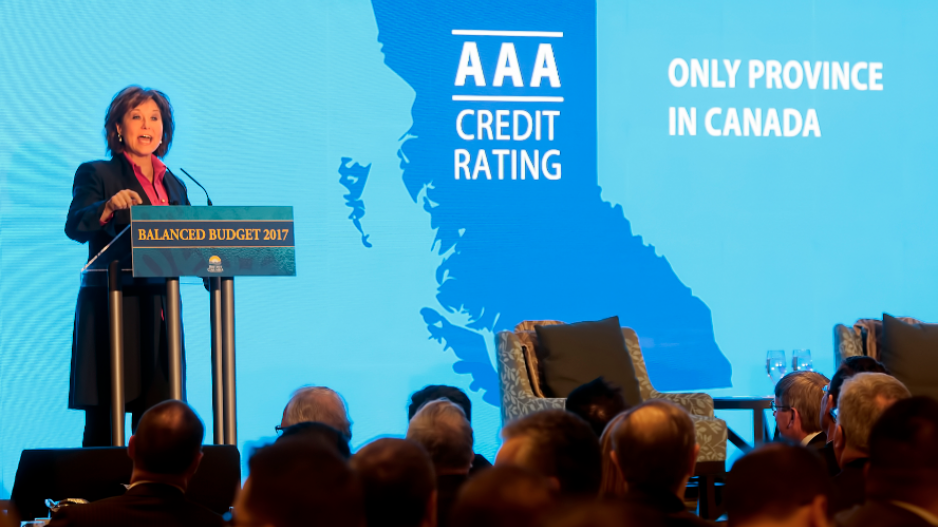No home run, but a series of bunt singles.
That’s how Phil Ross, tax partner with Grant Thornton, summed up last week’s provincial budget in terms of its benefits to business – benefits that won’t fully kick in until 2018 and 2019.
Cuts to Medical Services Plan (MSP), provincial sales tax (PST) on power sales and the small business corporate tax, plus the extension of credits like SR&ED (scientific research and experimental development), all add up to modest improvements.
The biggest immediate beneficiaries will be industries and technology companies that use a lot of power. Starting in October 2017, the PST on power will be halved to 3.5%, and it will be eliminated entirely in 2019.
Catalyst Paper (TSX:CYT) will save about $4.5 million annually when the PST is reduced to 3.5% from 7%, and about $9 million annually once it’s removed entirely in 2019, said Len Posyniak, the company’s senior vice-president of human resources and corporate services.
“It’s very significant,” Posyniak said. “It’s one of the hosting conditions that we mark out as a basis for looking at reinvestment in our mills in British Columbia, so this is very important for us.”
The second-biggest item for business in the 2017-18 budget is the reduction of MSP premiums by 50%. MSP premiums are a taxable benefit.
A typical worker earning between $42,000 and $120,000 pays $900 a year in MSP. Starting in January 2018, those payments will be halved to $450 annually.
Employers who cover all or a portion of those premiums will see the biggest benefit. A company that covers employee MSP and employs 500 people, for example, would currently pay roughly $450,000 in MSP in 2017. In 2018, it would pay $225,000.
Some employers don’t actually pay employee MSP benefits but deduct the money from employees’ pay and remit the payments to the government on behalf of their employees.
In that case, both the employer and employee will benefit when MSP premiums are halved.
“You’re benefiting by the tax savings on the tax benefit,” Ross said. “Your employer is saving because he doesn’t have to write the $1,000 cheque – he has to write the $500 cheque. So it’s win on both sides. You don’t have as big a taxable benefit, and I’m not writing as big a cheque.”
“If you’re a bookkeeper, you’d want to make sure you’re updating your payroll accounts,” Ross added. “You just want to make sure that you’re on top of it at January 1 – that you know what that reduced premium is. That premium is based on income levels, so there’s a bit of a task to determine everybody’s income levels based on the new rates and understand what the new rates are.”
Small businesses in B.C. will benefit from a modest cut to the small-business corporate income tax, which is being lowered to 2% from 2.5%, starting April 1.
“It’s not a big rate drop, but it’s still a drop,” said Walter Pela, managing partner for the Greater Vancouver region for KPMG, “and I think an interesting observation is that it puts our small-business rate as the lowest in Canada.”
Business owners should be aware, however, that if any additional profits from the lower business tax rate are taken by the business owner as income, the dividend tax credit cancels them out.
“There’s an increase to the tax rate on a dividend out of a small business,” Ross said. “So they gave a half-point reduction to the corporation, but they’ve increased the personal tax when the business owner takes the money out to his pocket.”
In other words, the small-business corporate tax cut becomes a real benefit only if the money saved is reinvested in the business, rather than taken as income.
“When we ask our members what they would do with the tax savings, they tell us they would reinvest back in their business in terms of hiring more people or expanding operations or, in some cases, buying safer and more productive equipment,” said Richard Truscott, B.C.-Alberta vice-president for the Canadian Federation of Independent Business.
“So that injection of resources back into small business is a major benefit and would lead to improved productivity and growth for small businesses.”
Other benefits to business in the 2017-18 budget are the extension of certain credits, like SR&ED, the training tax credit, interactive digital media credit, and mining flow-through credit.
Ross said credits like SR&ED are particularly important to the high-tech sector.
“They provide, in essence, some of the financing to produce scientific advancement or product advancement.”
Ross added that another small but important measure in the budget is the addition of $3.5 million to the small-business venture capital program, which encourages venture capitalists to invest in small startups.
“It allows these small startups which traditionally have a very difficult time sourcing traditional financing,” Ross said. “The investor gets a tax credit, but what it does is it increases the pool of finance capital out there in the equity world to invest in these startups.”




